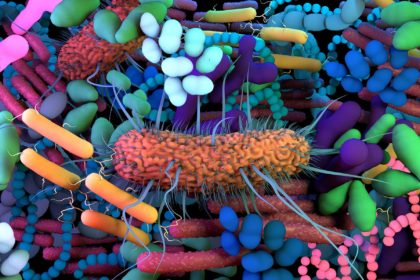
A team of nearly three dozen researchers from around the world reviewed case studies on microbiome research in agrifood systems. Their results, published in the journal Frontiers in Microbiology, “showcase the importance of microbiome research in advancing the agrifood system.”
Their 14 success stories include a broad range of topics within agrifood:
- Microbial dynamics in food fermentation
- Using microorganisms as soil fertilizers
- Applications to improve HACCP systems
- Identification of novel probiotics and prebiotics to prevent disease
- Using microbiomes of fermented foods for starter cultures
- Fermenting feed to improve the microbiomes of livestock
- Identifying microbes in fermented meats
- Using microbiota analysis for fermented dairy products
To further microbiome use in food systems, the research points to studies highlighting that fermented foods include many health-promoting metabolites (including studies by TFA Science Advisory Board member Maria Marco, a University of California, Davis, food science professor). But, the researchers stressed: “How certain microorganisms drive food fermentation, are transferred across the food production chain, persist in the final product and, potentially, colonize the human gut is poorly understood.” Researchers conclude that more work is needed to understand how the probiotics and metabolites in fermented foods could be used to treat diseases.
“Agrifood companies recognize the potential in understanding the microbiome and translating this knowledge into products,” the study continues. The food industry, the study notes, is “further preparing to develop personalized diets and specific foods for particular target groups in order to prevent or treat certain chronic conditions.”
“The microbiomes of soil, plants and animals are pivotal for ensuring human and environmental health. Research and innovation on microbiomes in the agrifood system are constantly advancing, and a better understanding of these microbiomes will be a key factor in producing highly nutritious, affordable, safe and sustainable food.”
Read more (Frontiers in Microbiology)
